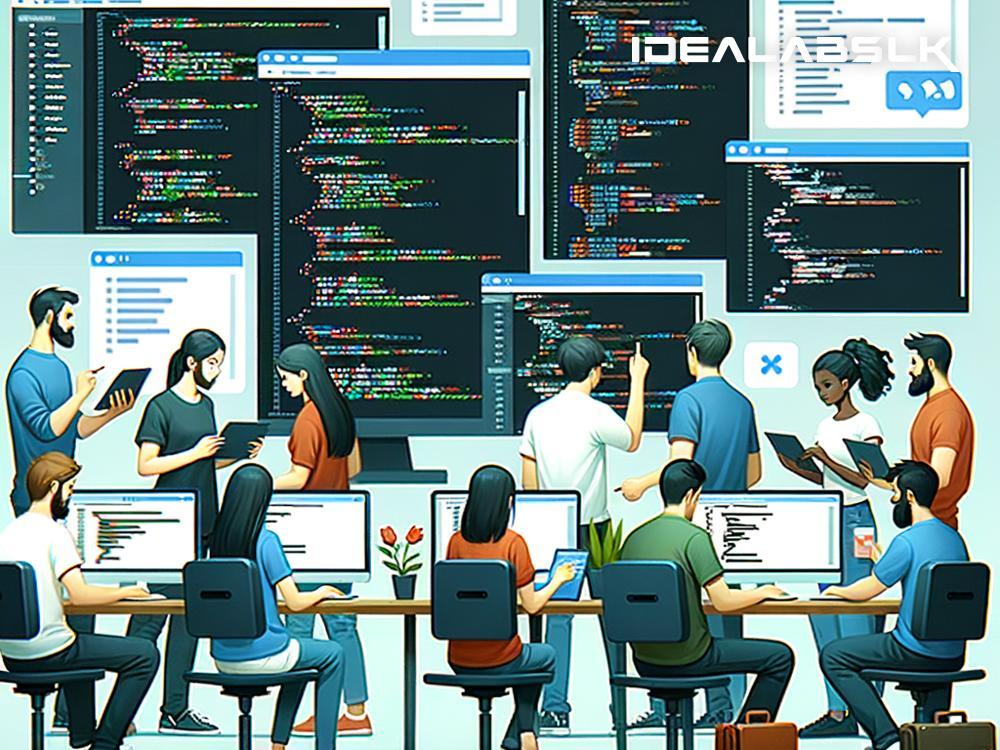How GitHub and GitLab Revolutionized Collaborative Coding
In the world of software development, collaboration is key. Long gone are the days when coding was a solitary endeavor, confined to a single programmer hunched over a keyboard. Today, building software is a team sport, and two platforms have led the charge in transforming how developers work together: GitHub and GitLab. Both platforms have become synonymous with modern software development, but how exactly have they revolutionized collaborative coding? Let’s break it down in simple English.
The Advent of Version Control
To understand the impact of GitHub and GitLab, we first need to touch on version control systems (VCS). Think of a version control system as a magical diary for coding projects. Every change made to the code is recorded in the diary, allowing developers to track changes, revert to previous versions, and experiment without fear of losing work or messing up the main project. Git, created by Linus Torvalds in 2005, is the most popular VCS today, and both GitHub and GitLab are built around it, offering cloud-based platforms to host Git repositories.
GitHub: The Social Network for Developers
Launched in 2008, GitHub took the coding world by storm. Its genius lay in combining Git’s capabilities with a user-friendly web interface and social networking features. Suddenly, developers could easily store their code (in repositories), collaborate with others, and track all changes made to a project over time.
GitHub popularized the concept of "forking" and "pull requests." Imagine you find someone else’s project on GitHub and think of an improvement. You can "fork" the project (i.e., create a personal copy), make your changes, and then submit a "pull request" to the original owner. They can review your changes and decide whether to integrate them into the project. This process democratized coding, opening doors for developers to contribute to projects from around the world, regardless of whether they were part of a formal team.
GitHub became so central to collaborative coding that it not only hosts millions of projects but also serves as a portfolio for developers. Being active on GitHub can help you land a job, find contributors for your own projects, or contribute to others, including high-profile ones like Bitcoin or the Linux operating system.
GitLab: More Than Just Collaboration
Following GitHub’s footsteps, GitLab emerged in 2011 with a similar proposition but quickly differentiated itself by offering more comprehensive tools for the entire software development lifecycle, not just version control and collaboration. GitLab includes features for planning, creating, verifying, packaging, releasing, configuring, and monitoring software—all in one platform. This approach positions GitLab as a complete DevOps platform, a set of practices that combine software development (Dev) and IT operations (Ops) to shorten the systems development life cycle and provide continuous delivery with high software quality.
GitLab’s integrated Continuous Integration/Continuous Deployment (CI/CD) functionalities are a game-changer. Developers can automatically test their code and deploy it to servers, ensuring that new code changes don’t break the existing project. This automation significantly speeds up the development process and reduces the potential for human error.
The Impact on Collaborative Coding
GitHub and GitLab have made collaborative coding more accessible, efficient, and democratic. They've created communities where developers from across the globe can come together to build software, learn from each other, and contribute to open-source projects. For companies, the ability to leverage distributed development teams and streamline project management and deployment processes has been transformative.
Both platforms also foster a culture of transparency and open-source contribution, where much of the code is available for anyone to use, modify, and redistribute. This openness has accelerated innovation, as developers can build on each other’s work rather than starting from scratch each time.
In Summary
GitHub and GitLab have reshaped the landscape of software development by harnessing the power of collaborative coding. They’ve provided tools and platforms that not only make collaboration easier but also integrate seamlessly into the broader development lifecycle. Whether you’re a solo developer working on a side project, a contributor to open-source software, or part of a global development team, GitHub and GitLab offer the infrastructure, community, and tools to bring your ideas to life. The revolution they’ve sparked in the software development world is a testament to the power of community and shared knowledge in driving innovation forward.

